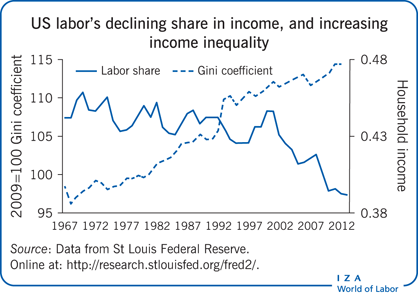Elevator pitch
Robots, that is any sort of machinery from computers to artificial intelligence programs that provides a good substitute for work currently performed by humans, can increasingly replace workers, even highly skilled professionals, and thus reduce opportunities for good jobs and pay. But, with appropriate policies, the higher productivity due to robots can improve worker well-being by raising incomes and creating greater leisure for workers. Consider the way Google reduces the need for reference librarians and research assistants, or the way massive open online courses reduce the need for professors and lecturers. How these new technologies affect worker well-being and inequality depends on who owns them.

Key findings
Pros
Policy can eliminate technology-induced joblessness.
Labor can gain from labor-saving and capital- saving technologies if its supply is less elastic than capital’s.
Skill-biased technical change could raise the relative demand for skilled workers faster than the supply of skilled workers increases.
Workers can earn more of their income from capital than from working—by owning part of the robots that replace them.
Cons
Robots, software, and apps are replacing labor. Robots could take the good jobs at high pay and leave the low-pay jobs to humans.
The distribution of income in advanced countries has shifted toward capital.
The ownership of robots is the prime determinant of how they affect most workers.